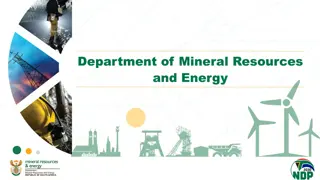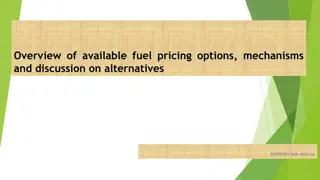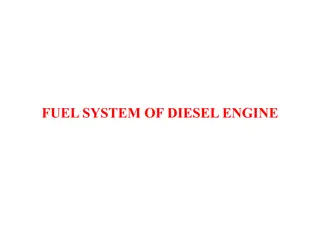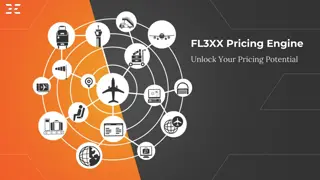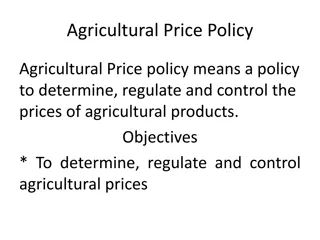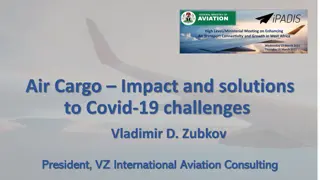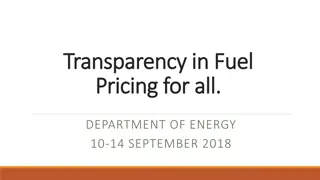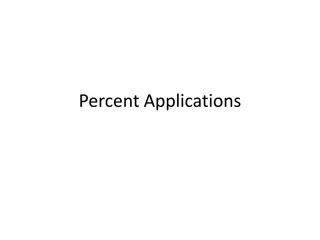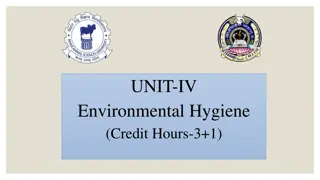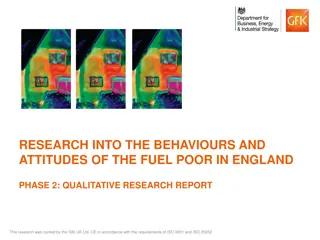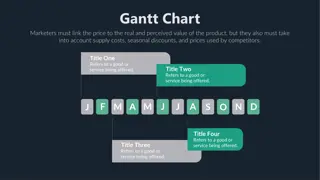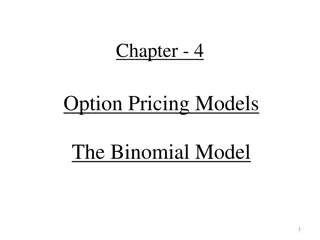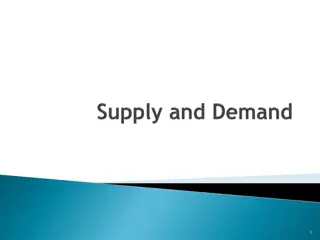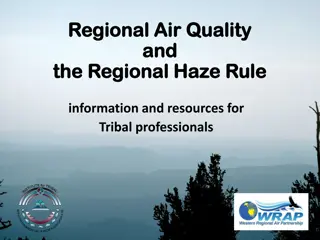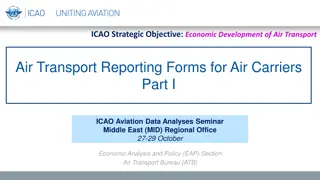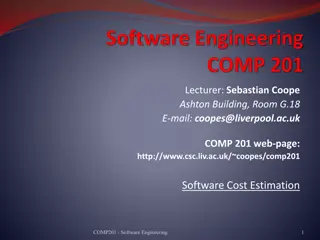The Impact of Fuel Prices on Air Cargo Pricing Strategies
The aviation industry is significantly influenced by fluctuating fuel prices, impacting operational costs and subsequently, air cargo pricing strategies. As one of the most variable and substantial expenses for airlines, fuel prices necessitate dynam
Download Presentation

Please find below an Image/Link to download the presentation.
The content on the website is provided AS IS for your information and personal use only. It may not be sold, licensed, or shared on other websites without obtaining consent from the author. Download presentation by click this link. If you encounter any issues during the download, it is possible that the publisher has removed the file from their server.
E N D
Presentation Transcript
The aviation industry is significantly influenced by fluctuating fuel prices, impacting operational costs and subsequently, air cargo pricing strategies. As one of the most variable and substantial expenses for airlines, fuel prices necessitate dynamic adjustments in pricing models to maintain profitability and competitiveness. Revenue Technology Services (RTS) provides innovative solutions to navigate these complexities, enabling airlines to implement effective air cargo pricing strategies. The Volatility of Fuel Prices Fuel prices are notoriously unpredictable, affected by global events, geopolitical tensions, supply chain disruptions, and market demand fluctuations. This volatility poses a challenge for airlines, which must anticipate and react swiftly to changes. A sudden spike in fuel prices can erode profit margins, forcing airlines to reconsider their pricing strategies for air cargo.
Dynamic Pricing Strategies To manage the impact of fuel price volatility, airlines often adopt dynamic pricing strategies. Dynamic pricing allows airlines to adjust air cargo rates in real-time, reflecting the current cost of fuel. This approach ensures that airlines can cover their costs and sustain profitability despite fluctuations. RTS offers advanced pricing algorithms that leverage historical data, market trends, and predictive analytics to set optimal prices. Fuel Surcharges Another common strategy is the implementation of fuel surcharges. These surcharges are additional fees added to the base air cargo rate to offset the increased cost of fuel. By passing some of the fuel costs directly to customers, airlines can mitigate the impact on their margins. However, the application of fuel surcharges must be carefully managed to avoid alienating customers. Transparent communication and justification of these charges are crucial to maintaining customer trust and satisfaction. Cost-Efficiency Measures Airlines also focus on improving fuel efficiency to reduce costs. Investments in newer, more fuel-efficient aircraft, optimizing flight routes, and employing advanced fuel management systems are some of the measures taken to enhance fuel efficiency. These initiatives, supported by RTS's technological solutions, help airlines reduce their dependency on fluctuating fuel prices, thereby stabilizing air cargo pricing.
Collaborative Approaches Collaboration with other industry stakeholders, such as fuel suppliers and logistics providers, can also play a vital role. By forming strategic partnerships and engaging in collaborative fuel purchasing agreements, airlines can secure more stable fuel prices. These collaborations can lead to more predictable costs and more consistent air cargo pricing strategies. The Role of Technology RTS s technology solutions are pivotal in addressing the challenges posed by fuel price volatility. Through real-time data analytics, machine learning, and artificial intelligence, RTS empowers airlines to forecast fuel price trends accurately and adjust their pricing models accordingly. These advanced tools enable airlines to maintain competitive and profitable air cargo rates, even in a volatile market. Conclusion The impact of fuel prices on air cargo pricing strategies is profound, necessitating a multi-faceted approach that includes dynamic pricing, fuel surcharges, efficiency measures, and technological integration. Revenue Technology Services equips airlines with the tools and insights needed to navigate these challenges effectively. By leveraging RTS s expertise in air cargo pricing, airlines can achieve a balance between cost management and customer satisfaction, ensuring sustainable profitability in the ever-evolving aviation industry.


